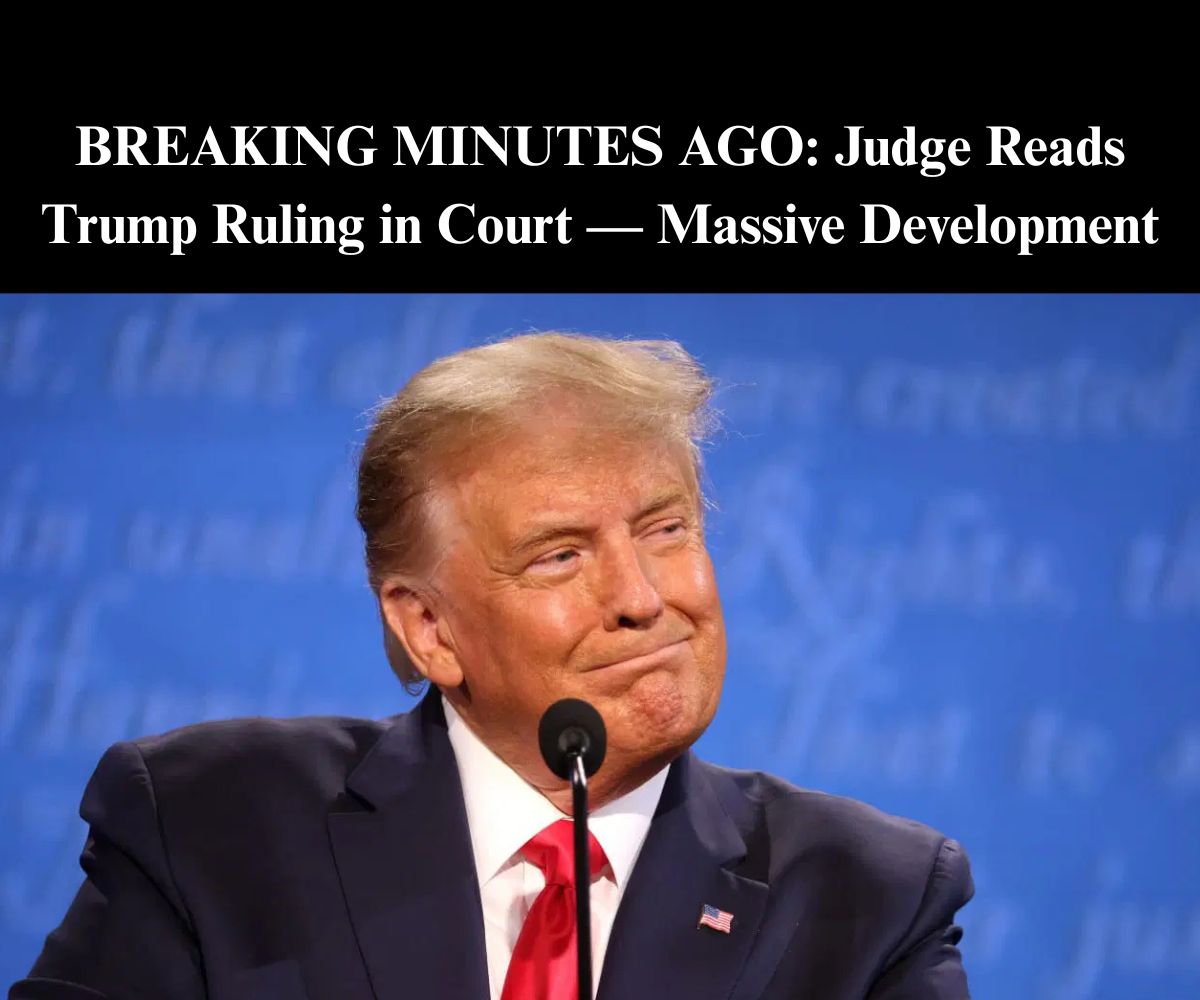A federal judge on Tuesday dismissed a lawsuit filed by the Trump administration earlier this year against all 15 federal judges in Maryland, rejecting the Justice Department’s bid to curtail court power in fast-moving immigration cases.
The judgment on Tuesday characterized the lawsuit as a major constitutional standoff, with Judge Thomas Cullen stating that the Justice Department could not pursue a “constitutional free-for-all,” CNN noted.
Cullen, who was appointed to the bench by President Donald Trump during his first term and brought in from another district to handle the case in Maryland, ruled that the government lacked the legal right — known as standing — to bring the challenge and that judges are immune from suits brought by the executive branch.
“Any fair reading of the legal authorities cited by Defendants leads to the ineluctable conclusion that this court has no alternative but to dismiss. To hold otherwise would run counter to overwhelming precedent, depart from longstanding constitutional tradition, and offend the rule of law,” Cullen wrote in the 39-page decision.
In late June, the Justice Department sued all federal judges on the lower-level District Court of Maryland after the court’s chief judge implemented a rule that would automatically and temporarily prevent the Trump administration from removing an immigration detainee from the United States if the detainee had filed a court challenge to their removal.
That rule was on full show Monday in the case of Kilmar Abrego Garcia, a Maryland man who was improperly deported to El Salvador in mid-March and later returned to the United States.
The Trump administration had indicated that he would be deported immediately, but Abrego Garcia filed a new case in Maryland, triggering the court’s protection against rapid deportation.
Cullen determined on Tuesday that he lacked the authority requested by the Trump administration to ban the Maryland judges it sued immediately, and that the executive branch lacks a legal basis for suing the judges in the manner it did.
“Dismissal of the Executive’s suit is appropriate because it has not pointed to a cause of action that permits this court to entertain a lawsuit between two coordinate branches of government, and this court will not be the first to create one,” he wrote.
The Department of Justice had contended that the automated orders issued by the Maryland court in some immigration cases were unlawful.
This was due to the fact that the orders did not contain the typical investigation that a judge would perform in order to assess whether or not a temporary block against a removal was appropriately justified.
When Cullen was finishing his ruling, he emphasized the exceptional character of the complaint, which occurred at a time when the Trump administration was dealing with a number of immigration-related issues in the midst of its drive to deport an unprecedented number of undocumented immigrants from Maryland and other states.
“Much as the Executive fights the characterization, a lawsuit by the executive branch of government against the judicial branch for the exercise of judicial power is not ordinary,” he wrote.
“Whatever the merits of its grievance with the judges of the United States District Court for the District of Maryland, the Executive must find a proper way to raise those concerns,” he added.
The White House has not responded directly to the ruling but the president has hinted in the past that lawsuits as such are meant to test measures in the court system. Despite what liberals claim about Trump trying to subvert the courts, his team contends he has been doing everything by the book and through the intended measures and avenues — such as the courts.
